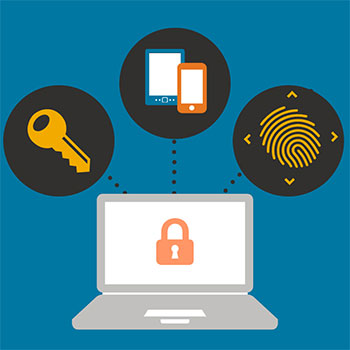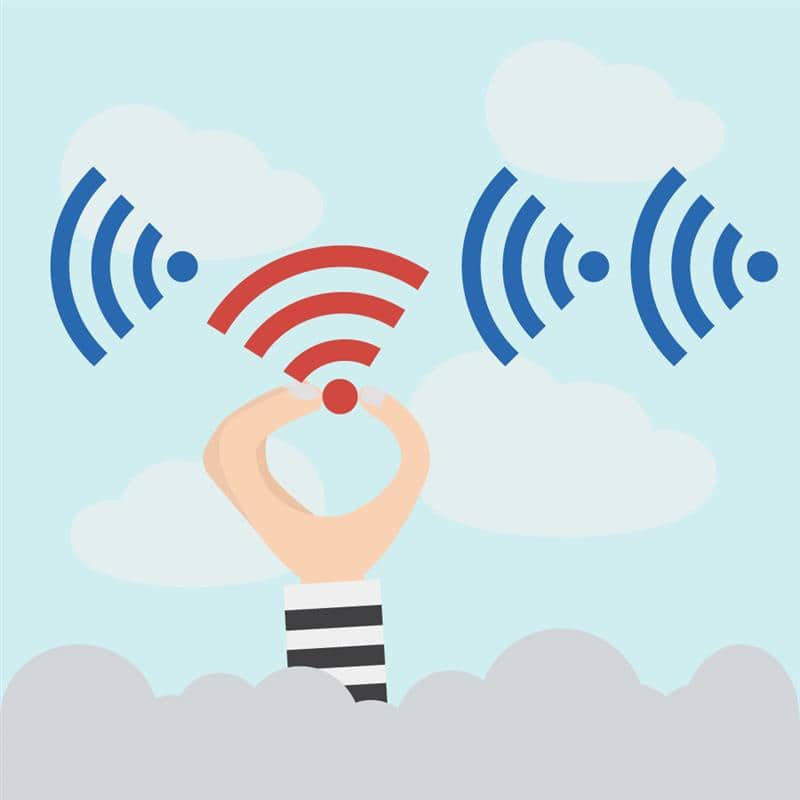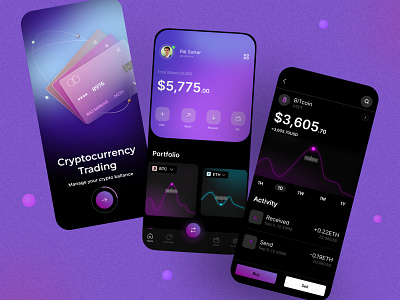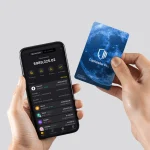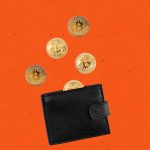How to avoid crypto wallet scams—it sounds tough, right? Think again! I’m here to turn you into a scam-dodging ninja in the cryptosphere. With fraudsters lurking in every digital corner, knowing what to watch for is your first powerful punch. My insight on the tell-tale signs of a scam sets you up for a good defense. But it doesn’t end there. I’ll guide you through bulletproof ways to keep your virtual coins safe. Get ready to learn the must-do moves for protecting your digital dollars!
Recognizing and Thwarting Crypto Wallet Scams
Understanding the Red Flags of Digital Wallet Fraud
Have you ever seen a deal that just seemed way too good to pass up? In the world of crypto, those offers often lead to scams. Let’s talk about how you can spot these red flags early. First, be wary of any promise of high returns with no risk. Think about it. If it seems too good to be true, it probably is. Scammers love to lure folks in with big promises.
Watch for strange emails or messages. They might say you won a crypto lottery. But did you even enter one? Nope. That’s a sign. And if an app or website looks weird, like a jumbled copy of a legit one, trust your gut. This could be a fake aiming to get your precious info. Protect your private keys like gold. Never share them. If someone asks for them, that’s a red flag.
The key is to stay alert. If you’re not sure about something, double-check everything. And remember, legit crypto folks won’t ask for passwords or keys.
Best Practices for Cryptocurrency Wallet Security
Do you want to keep your digital coins safe? You’ve got to be on top of your game with security. First off, let’s talk multi-factor authentication (MFA) for your wallets. This means adding extra checks before access is granted. It could be a code on your phone or a fingerprint. MFA is your friend. It’s a strong guard against hackers trying to bust into your wallet. Keep those security layers strong.
Backing up your wallet is key. Do it on a physical drive or paper that’s kept safe and sound. If your tech goes poof, you won’t lose your coins. A crypto wallet backup is a lifesaver.
Choose cold storage for your big savings. Cold wallets are not always online, so they’re harder for crooks to crack. Save the hot wallets for daily spending only.
Be super picky about which storage solutions and providers you trust. Do your homework. Read reviews and ask the community. Only if they pass your tests should you go ahead. And please, keep your software up to date. Those updates can fix security holes that could let scammers in.
Lastly, let’s talk backup strategies. Regularly updating and securing your backups is non-negotiable. Think hard about who knows where your backups are. Your secret spot shouldn’t be common knowledge.
So there you have it, friends. Keep these tips in mind. Stay safe, and keep the scams at arm’s length. With smart moves and a sharp eye, your crypto journey can be less about stress and more about success.
Reinforcing Your Crypto Wallet Defenses
Multi-Factor Authentication and Protecting Private Keys
Keep your crypto safe – always use multi-factor authentication (MFA) on your wallet. MFA means you need more than one proof to get into your wallet. This could be something you know, like a password, something you have, like your phone, or something you are, like your fingerprint. It’s a strong shield against scam artists trying to crack your wallet open.
For better safety, hide your private keys. These keys are like the master password to your wallet. If someone else gets them, they can take your money. You wouldn’t hand out your bank PIN, right? Treat your private keys the same. Keep them off your computer, and never share them online. Write them down, lock them up – make them hard for others to find.
Secure Management of Wallet Seed Phrases
What’s a seed phrase, you ask? It’s a list of words that can restore your wallet if something goes wrong. Think of it like a recovery kit. It’s super important and just as sensitive as your private keys. If bad guys get it, they can swipe your crypto. So, how do you keep it safe?
First, don’t keep it on your computer or phone. Write it down, keep it secret. Maybe even split it into pieces and store them in different places. This way, losing one piece doesn’t spell disaster.
You may wonder how exactly to store your seed phrase pieces. Well, some people use safety deposit boxes, hidden safes, or even bury them! But remember, if you can’t get to them when you need them, that’s a problem too. So keep accessibility in mind.
And please, don’t just give your trust to any crypto storage solution you find online. Do your homework, or you might fall for one of those online wallet scams. Check reviews, look for a solid history, and ask around in crypto communities. They should have earned their stripes before you consider them safe for your assets.
In the sea of digital fraud prevention, your vigilance is your best life jacket. You need to see those scam red flags waving high! They can be things like weird links, offers that are too good to be true, or unknown apps asking for your info. When in doubt, don’t click, don’t share, and don’t trust.
Remember, no legitimate service will ask for your private keys or seed phrases. If they do, that’s a telltale sign of a crypto scam. When you’re trading, also be sure to double-check wallet addresses. One wrong letter and your crypto could go bye-bye to a scammer’s address instead.
As for peer-to-peer trading, it’s like meeting someone to sell your bike. Meet in a public place, a digital one for crypto. Use trusted platforms and always check the person’s trade history. Think of it like a street-smart move for the web.
Now you know – protect your private keys as if they were treasure, and manage your seed phrase like it’s the map. With MFA, smart storage, and your own smarts, you can keep your crypto out of the wrong hands.
The Do’s and Don’ts of Crypto Transactions
Phishing Attack Prevention During Crypto Exchanges
When trading crypto, avoid phishing. Always check links and email addresses carefully. Don’t click on a link just because it seems to lead to a well-known site. Scammers can make fake sites that look real to steal your info. So, copy and paste the actual website address. Use trusted sources to get there. This means you keep your data safe from thieves.
For instance, you’re ready to make a trade. You get an email that looks like it’s from a legit exchange. Don’t bite! Check the sender’s email. Does it match the exchange’s real email? Look out for odd words or misspellings. They’re a big red flag. Hackers want you to hurry and make mistakes. Take your time. It’s your crypto, after all.
It’s best to avoid links in emails and messages totally, especially if you didn’t expect them. If something doesn’t feel right, listen to that feeling. Even when you think it’s safe, go directly to the site. Protect yourself by using secure Wi-Fi or a VPN. It makes it harder for hackers to get your data.
Add multi-factor authentication to your wallet. This means more than one check before you can get in. Even if someone gets your password, they can’t get your coins. This could be a code from an app, or a text. You only get the code if it’s really you, so it keeps your stuff safe.
Verifying Wallet Addresses and Recognizing Phishing Attempts
Always double-check wallet addresses. When you send or receive crypto, it’s like mailing cash. Once it’s gone, it’s gone. So, check the address you’re sending to. Even one wrong letter means your crypto is lost forever.
Getting a high-precision answer right off the bat is key. When asked, “How do I know it’s the right wallet address?”, a precise response is, “Ensure it matches exactly the one given by the receiving party.”
To prevent being scammed, use wallets that let you scan QR codes. This reduces the chance of typing mistakes. Do this especially for big trades. Even so, bad folks can mess with QR codes too. So, still check the address, even if you scanned it.
Watch out for warning signs in crypto dealings. Like, if someone rushes you or promises big returns with no risk. These are common tactics in crypto scams. They try to get you to act fast so you don’t think it through.
To spot phishing, look out for odd messages or emails. Those things that seem a little off, maybe it’s a wrong name or a weird request. If it seems strange, ignore it. Always use known and trusted sites to do your trading. Don’t go for deals that are too good to be true. They probably are.
Being careful with crypto transactions is like locking up your bike. You wouldn’t just leave it out for anyone to take. Treat your crypto the same way. Secure your data, check everything twice, and trust your gut when something seems fishy. Remember, your digital wallet holds real money. It’s worth taking the time to keep it safe.
Educating Yourself Against Advanced Scam Tactics
Spotting Fake Wallet Apps and Avoiding Common Scams
Cryptocurrency can be a wild ride. Scammers know it and they love it. They trick people with fake wallet apps. These are apps that look real, but they’re traps for your coins. Always check who made the app. Look for reviews but be wary, some could be fake. Trust apps from trusted stores only, like Google Play or Apple Store.
Watch out for scams where you’re asked to give private keys or send funds. If someone you don’t know asks this, it’s likely a scam. Think twice before you act.
Scammers might say you’ll make big money fast. It’s a classic move, often a fake promise. Remember, if something seems too good to be true, it probably is. Stick to well-known platforms and avoid offers from strangers online.
The Importance of Encrypted Communication and Smart Contract Vigilance
Now, let’s talk about safe talks and smart contracts. When you’re dealing with crypto, always encrypt your chats. Encryption keeps your messages safe from nosy eavesdroppers. Use apps like Signal or WhatsApp for encrypted chats.
Be smart with smart contracts too. They’re like vending machines for services—but with code. They can be tricky. Scammers can hide traps in the code. You may not see it, but your coins could slip away. Always have a pro check smart contracts before you agree to anything.
Remember, keeping your crypto safe is a lot about common sense. Don’t rush, and always double-check everything. With these tips, you’ll be steps ahead of those crafty scammers. Stay alert and stay safe.
In this post, we tackled how to spot and shut down crypto wallet scams. You’ve learned what to watch for and how keep your digital money safe. Your crypto wallet is like a vault. Multi-factor authentication and keeping private keys secret are your guards. Write down and hide your wallet’s seed phrases well.
When making crypto moves, don’t get tricked. Stop phishing by double-checking wallet addresses. Don’t let hackers lure you. Our look into scam tactics shows the need to stay sharp. Watch out for fake apps and always use encrypted chats to keep sneaky scammers at bay. Keep these tips top of mind and your crypto safe. Stay alert and you’ll trade with confidence.
Q&A :
How can I identify and avoid cryptocurrency wallet scams?
Identifying and avoiding crypto wallet scams begins with exercising caution and verifying the legitimacy of wallet providers. Look out for red flags like unsolicited offers or pressure to act quickly, and check for spelling errors or unofficial URLs in wallet applications and websites. Always download wallet apps from official sources, such as the provider’s website or official app stores, and conduct thorough research, including reading reviews from other users. A strong focus on security features and transparency about the company’s background is also paramount.
What are the common signs of a scam crypto wallet?
The most common signs include phishing attempts, where scammers try to trick you into revealing your private keys or sending money to their wallets, promises of unrealistic returns, and wallets appearing shortly after the launch of a new cryptocurrency without proper background or security information. Mismatched URLs, poor design, lack of customer support, and requests for private keys or recovery phrases are also significant warning signs that should not be ignored.
What steps should I take if I suspect my crypto wallet is a scam?
If you suspect your crypto wallet is a scam, the first step is to stop all transactions immediately. Do not enter any more personal information or transfer any funds. Then, report the application to the app store or regulatory authorities to help prevent further scams. Importantly, move your funds to a secure and reputable wallet as soon as possible. It is also advisable to change your passwords and implement additional security measures on your legitimate accounts.
Are there any security practices that can protect me from crypto wallet fraud?
Yes, implementing robust security practices can greatly reduce your risk of crypto wallet fraud. Use wallets with strong reputations and proven security measures. Always enable two-factor authentication (2FA) and never share your private keys or recovery phrases with anyone. Regularly update your software, back up your wallet, employ high-quality antivirus software, and be wary of using public WiFi networks when accessing your crypto funds.
Can blockchain technology itself prevent crypto wallet scams?
Blockchain technology, being immutable and transparent, does create a more secure environment by providing a public ledger for all transactions. However, it is not foolproof against scams related to crypto wallets, as the technology does not govern the integrity of wallet providers or the security of your end devices. Users must remain vigilant and take personal security measures, as blockchain cannot protect from deception or theft occurring outside its protocol.

